Best Homeschool Music Curriculum We’ve Actually Used
Finding the best homeschool music curriculum wasn’t easy, especially since I’m not musical myself.
We started with weekly piano lessons, but I wanted something more structured to help my son understand music theory, explore instruments, and actually enjoy the process.
Over the years, we’ve tried a mix of online programs, printable resources, and full curricula. Some didn’t stick, but others made a real difference. Here’s the music curriculum we’ve actually used and what worked best for us.
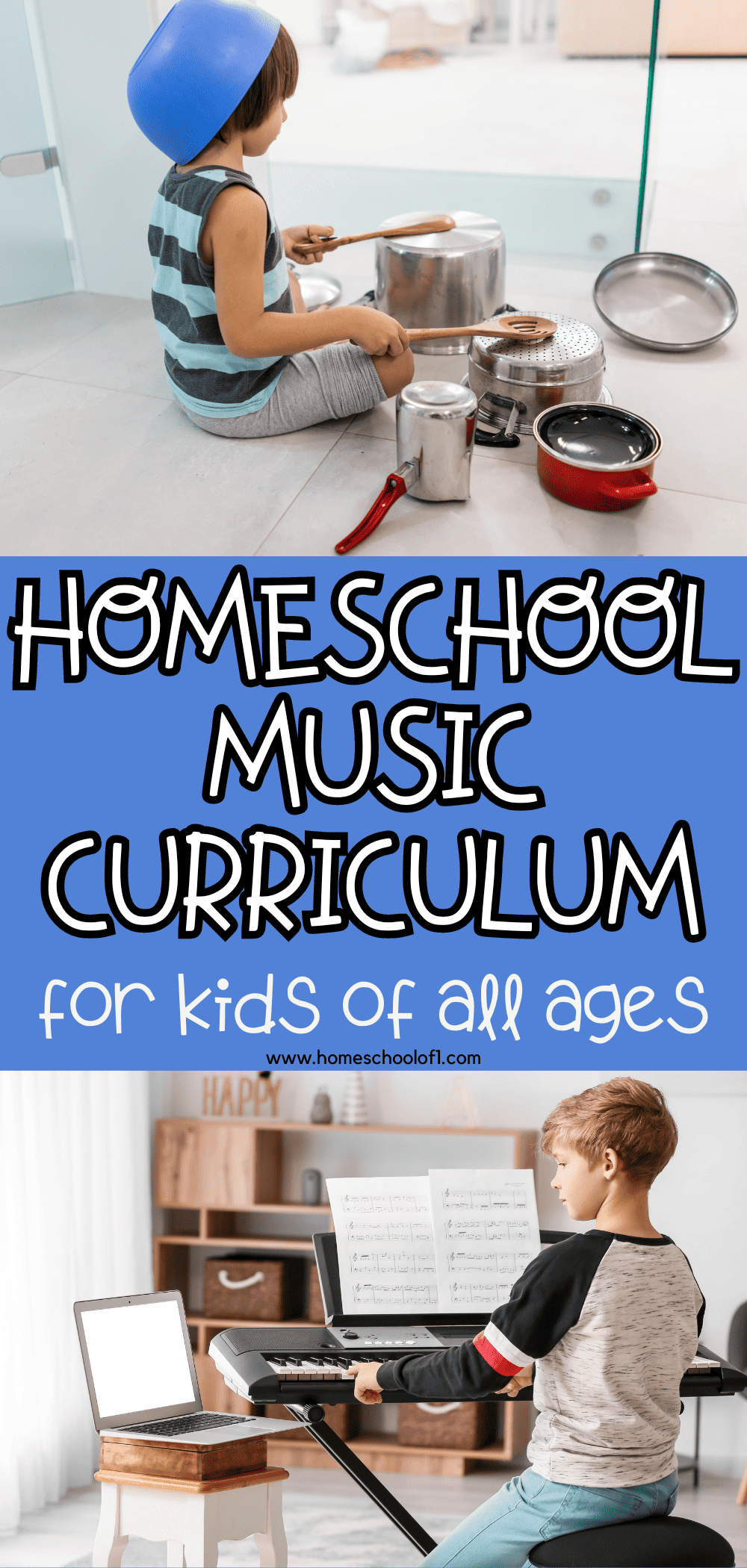
**This post may contain affiliate links. As an Amazon Associate and a participant in other affiliate programs, I earn a commission on qualifying purchases.**
Music Curriculum for Homeschooling
Once we added music to our homeschool schedule, I realized how many programs were either too basic or too overwhelming.
These are the ones that struck the right balance, engaging, age-flexible, and easy to use at home. Each one brought something different to the table, and together they’ve helped shape a more complete music experience for my child.
Music in our Homeschool
Music In Our Homeschool has been one of the easiest programs to stick with. With 48 self-paced online courses, it’s flexible enough to fit into almost any schedule. The variety of topics and the ability to go at your own pace make it especially helpful for busy homeschool families.
Mr. D Math
We were looking for a solid music appreciation program, and Mr. D Math Music Theory and Appreciation really delivered.
Designed for grades 6–12, it goes well beyond the basics, covering genres, music history, and how different styles developed over time.
The lessons are structured but approachable, and the format makes it easy for tweens and teens to work through independently. It’s been one of the more comprehensive programs we’ve tried.
If you’re still looking for a well-rounded educational plan, discover the best non religious homeschool curriculum for all subjects to complement your child’s learning across the board.
SchoolhouseTeachers
SchoolhouseTeachers is packed with variety, from beginner drum lessons to advanced theory. It’s been a great all-in-one solution, especially for families with kids at different stages.
The platform makes it easy to explore instruments or dive deeper into theory, and the family subscription model offers a lot of value if you’re using multiple subjects across grade levels.
Maestro Classics
Maestro Classics combines storytelling and classical music in a way that feels fresh and fun. Each piece is paired with a story and supported by free homeschool curriculum guides, which makes turning a listening session into a mini-lesson feel effortless.
It’s been a fun way to explore composers and classical music without needing a formal curriculum.
Composers Unit Study
We’ve used this Composers Unit Study to explore 36 composers, from Bach and Beethoven to John Williams. The coloring pages and simple facts make it easy to introduce music history without a lot of prep.
Famous composers research projectFamous music composers coloring pages
Starting with the free composers coloring pages helped us ease into it, and it ended up being one of the most low-pressure ways to learn about composers.
Sound Scholars
For younger kids, Sound Scholars has been a great resource. They offer free live online lessons for ages 2-5, and it’s been a nice introduction to music for my little one.
They also have affordable options for older kids, which makes it easier to keep going as your child grows and their interests expand.
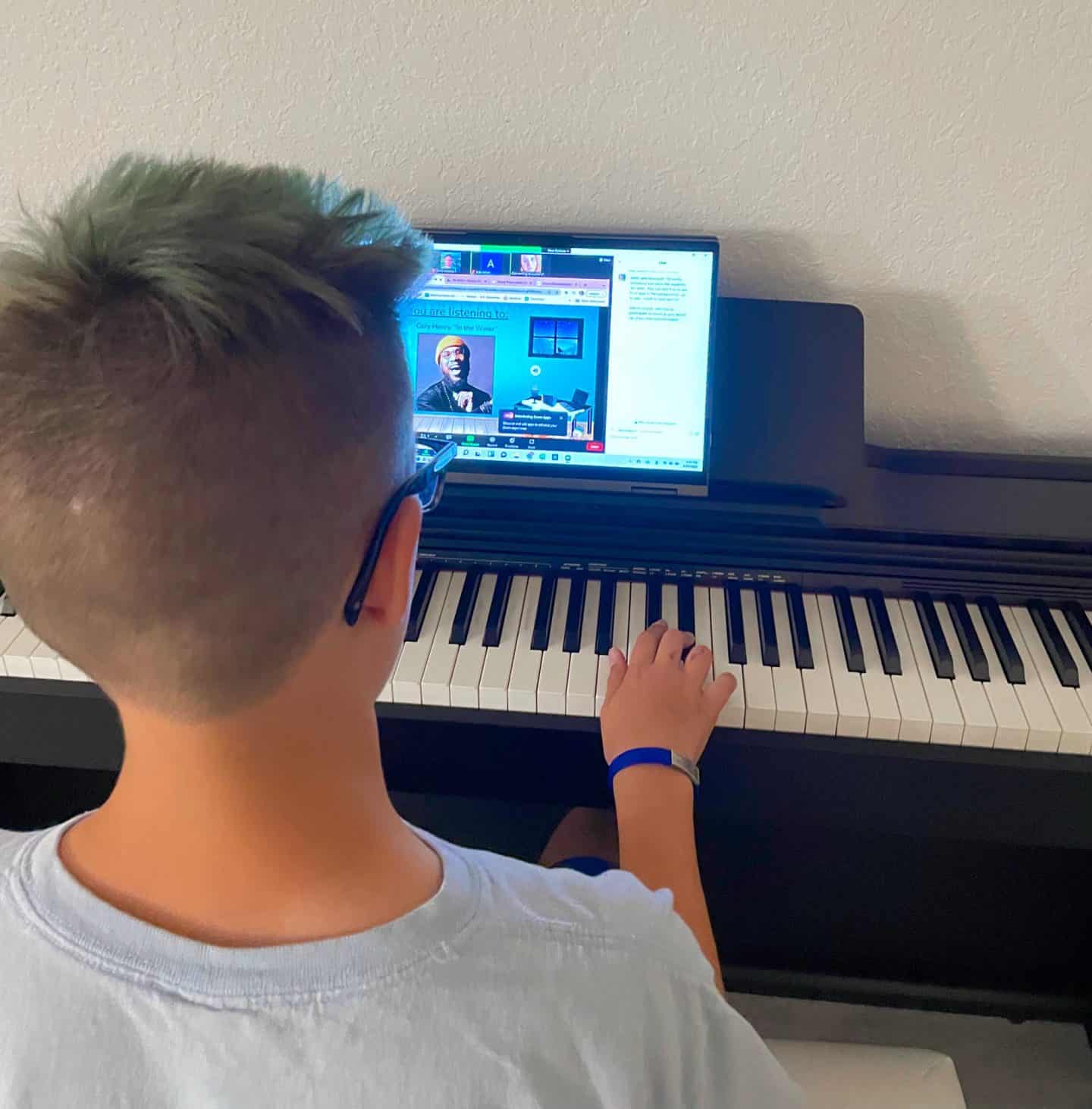
Prodigies Music
We’ve also had a good experience with Prodigies Music, which offers more than 600 video lessons aimed at kids aged 2-12.
What I appreciate most is their 30-day free trial, which gave us a chance to see if it was a good fit for our family before committing. It’s been a great way to bring structured music lessons into our home without a lot of pressure.
Free Music Programs That Helped Us
Music education doesn’t have to be expensive. Over the years, we’ve found some fantastic free resources that made it easy to introduce music into our homeschool without adding to the budget. Here are a few that really stood out:
- All in One High School: Great for older kids, especially if you’re looking for music appreciation with a historical focus. Their Middle Ages unit was a surprise favorite.
- Easy peasy all-in-one homeschool: We used this for early grades. It includes simple, free music appreciation lessons that worked well for both my son and younger friends just starting out.
- Kids Guitar Zone: If you’ve got a guitar-loving kid, this is a solid starting point. The lessons are clear, and the range of levels makes it easy to stick with.
- Hoffman Academy: Offers 300+ step-by-step piano videos. My son used these when we weren’t sure if formal piano lessons were the right fit—and they were a great introduction.
- Fiddlerman: A go-to for beginner violin lessons. We didn’t stick with violin long-term, but this site helped us give it a try without commitment.
- 8 Notes: Tons of free sheet music across instruments and genres. It’s been helpful for practice, especially when we wanted something outside our main curriculum.
- Classics for Kids: Perfect for younger kids. Their short composer bios, lesson plans, and podcasts kept things fun and accessible.
- Guitar Lessons: While not designed just for kids, there are plenty of beginner-friendly videos here that helped us test the waters before moving on to something more structured.
Music Theory Books We Actually Liked
Learning music theory can be fun, especially when you have the right resources.
Below are some of our favorite books, perfect for homeschoolers, music teachers, or any young music enthusiast wanting to dive deeper into the language of music.
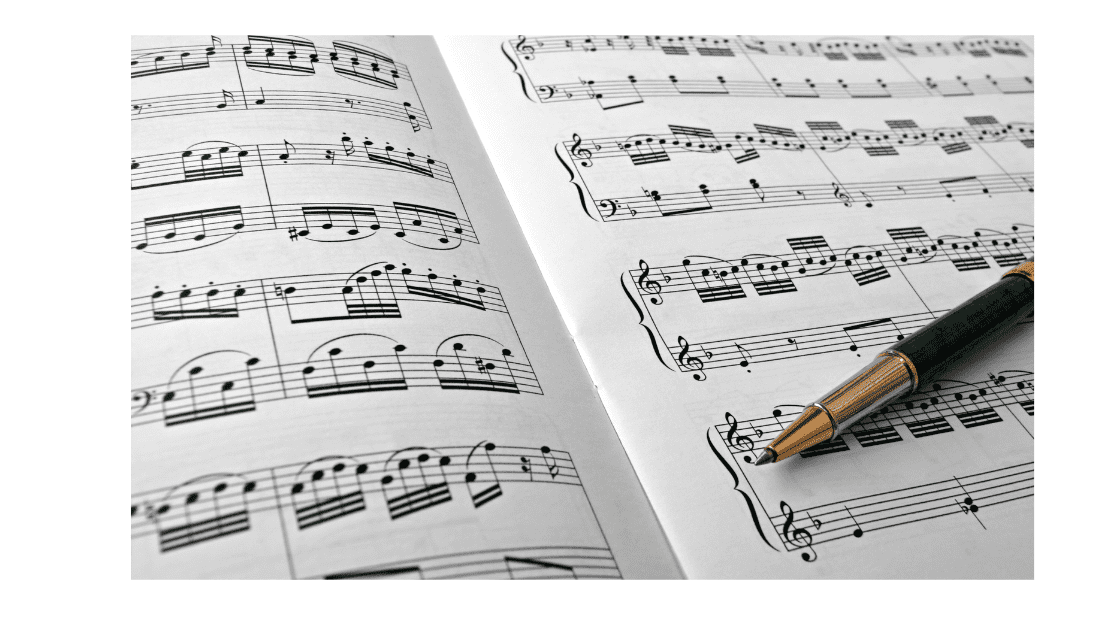
Teaching Music to Children. A curriculum guide for teachers without music training. This was written for elementary teachers, but this would work well in a homeschool environment too. It even comes with a 60 minute music CD.
Music The Definitive Visual Guide. A comprehensive reference book with spectacular timelines of key events. Plus profiles of musicians from Amadeus Mozart to David Bowie.
Help Your Kids with Music is a comprehensive visual guide and audio app. That assists children aged 10 to 16 in learning and understanding music.
Basic Music Theory 50 ready-to-use activities for grades 3-9. With downloadable worksheets to learn the basic elements. In music theory, pitch, intervals, dynamics duration, keys, scales, and music terminology.
Music and How it Works is a very colorful music book for kids. The book looks at music throughout history. Beginning with the first known melody from the Fertile Crescent and covering modern music phenomena, from K-Pop to hip-hop.
Music Appreciation Book for Elementary Grades will introduce children to seven different composers. Dating from 1685 to 1828 (Bach, Handel, Haydn, Mozart, Beethoven, Paganini, and Schubert). Each composer’s childhood and adult life are described in individual composer biographies.
Online Music Lessons We Recommend
These are the best music lessons online for kids. With these options, my son was able to dive into music lessons that felt personalized and engaging.
Hoffman Academy
Hoffman Academy offers both free and premium piano classes. The lessons are well-structured, with music theory worksheets, interactive song papers, and more.
They provide a great balance of theory and practical learning, making it easy for kids to follow along.
They also offer 300 step-by-step videos to guide budding pianists. Use the promo code “LEARN” for 10% off premium services, or try out their free lessons to see if it’s the right fit.
Outschool
Outschool provides a wide range of live online music classes, including ukulele, guitar, piano, singing, music history, and even niche instruments like mandolin and banjo.
The variety is perfect if your child wants to explore different instruments. Their platform makes it easy to find the right class for your child, and you can find more detailed information in our review of Outschool.

Homeschool Piano
Homeschool Piano is a fantastic resource that caters to all skill levels. Their 30-day full access trial gives you a chance to explore their platform before committing. Many homeschool parents praise the short, fun videos that help children quickly gain confidence and skill at the piano.
Vocal Coach
For young singers, Vocal Coach offers comprehensive vocal training that focuses on building healthy vocal habits. It’s a great option if your child is interested in developing their singing skills, as it covers everything from breathing techniques to vocal range improvement.
Yousician
Yousician provides lessons for guitar, piano, bass, ukulele, and singing. Their 7-day free trial allows your child to explore different instruments and see which one they connect with before you make a commitment.
Be sure to check out our free instrument matching game for a fun and interactive way to reinforce what your child is learning!
What Makes a Music Curriculum Actually Work
In our homeschool, focusing on music theory and playing multiple instruments has really helped my son become more confident in their musical skills.
When thinking about adding music into your homeschool, there are a number of key components you should look for:
- Music Theory: Understanding the building blocks of music.
- Key Composers: Exploring the works of notable musicians throughout history.
- Playing Multiple Instruments: Encouraging versatility in musical expression.
- Reading Music: Developing the skill to interpret musical notation.
- History of Music: Tracing the captivating journey of music through time.
- Music Appreciation: Cultivating a deep love for diverse musical genres.
- Ability to Identify Instruments by Ear: Sharpening ear training by recognizing instruments by their sound.
- Creating and Composing: Empowering students to craft their own musical masterpieces.
Best Place to Find Free Sheet Music
In our homeschool, I found that using free sheet music helped keep costs low while still providing my son with the practice materials needed to improve their skills. Virtual Sheet Music has been our go-to for everything from beginner to more advanced pieces.
You can easily search by genre or instrument, and they even offer free selections, making it an affordable option for homeschool families.
If you’re looking for more variety, here are a few other great places to find sheet music online:
- IMSLP (International Music Score Library Project): A vast collection of free, public domain sheet music. Perfect for exploring classical pieces.
- 8notes: Offers free sheet music across various genres, including classical, pop, and jazz, along with some useful tutorials.
Whether you’re looking for a comprehensive paid curriculum or just starting with free resources, there’s something here for every homeschooling family. Explore these options, and start with a free trial or resource to see which fits your child’s learning style best.
Last Updated on 15 May 2025 by Clare Brown

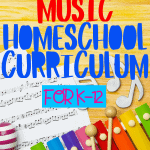
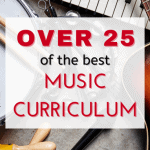
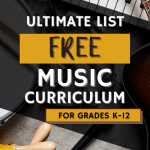
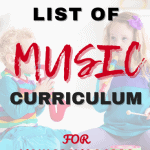
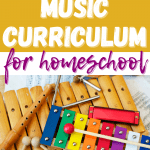
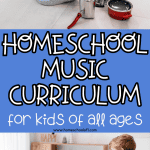

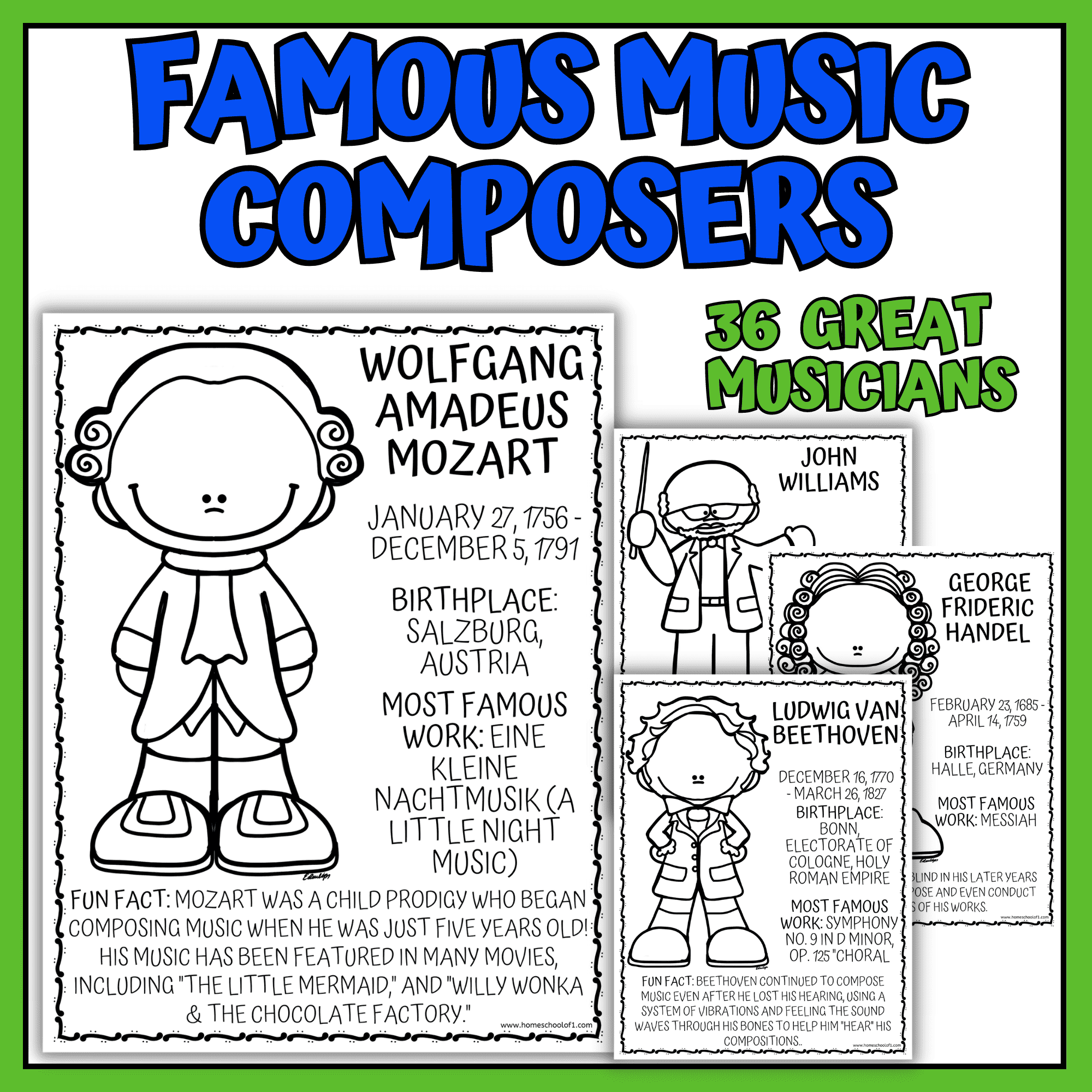
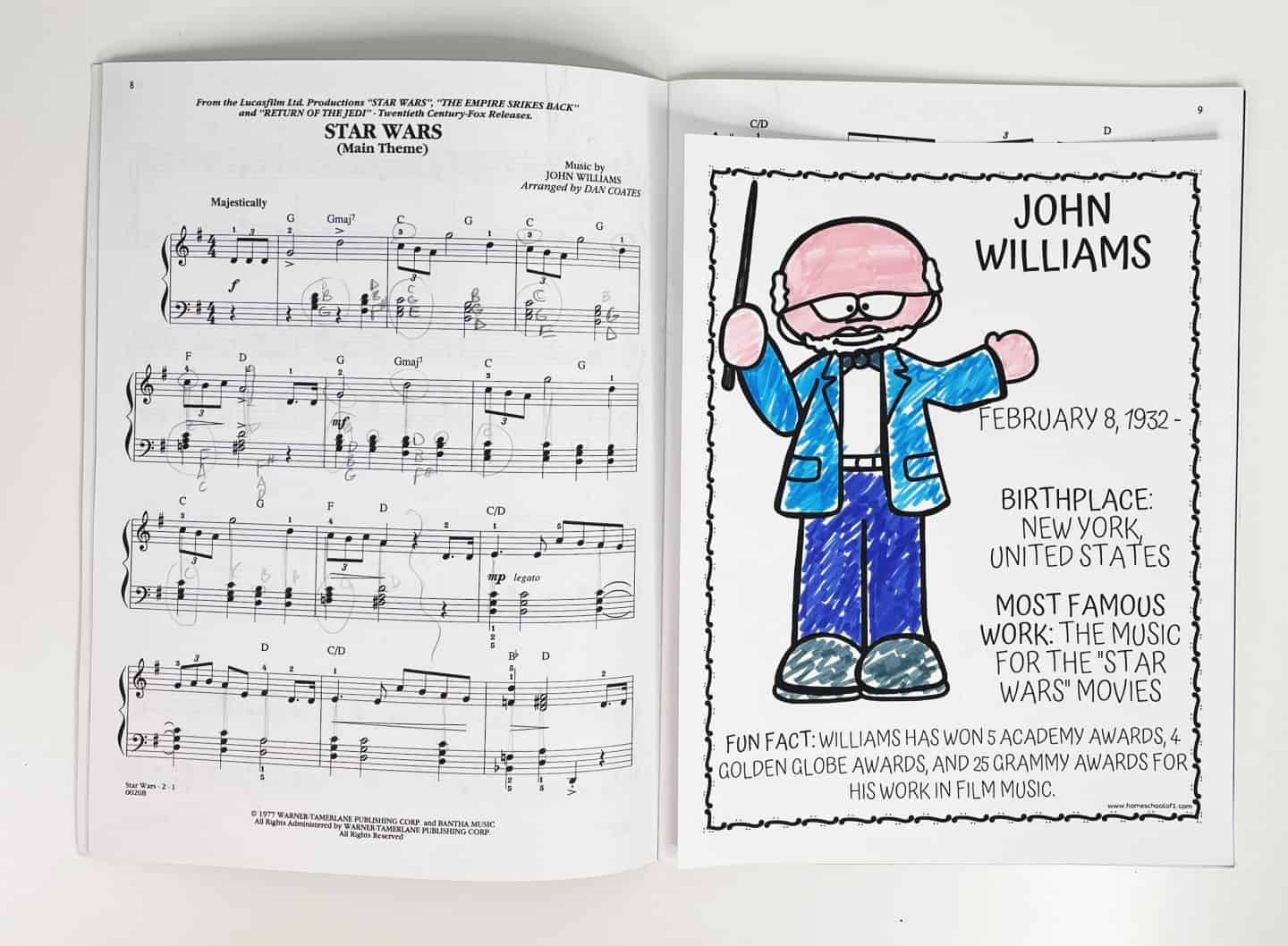



We use The Hands-on Homeschool Music course! It’s fun for my kids and it teaches them all the things you listed above.
Thank you for sharing I will make sure to check them out.